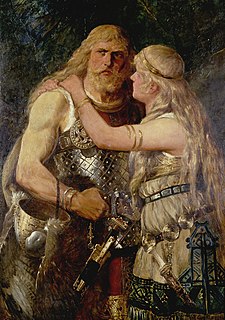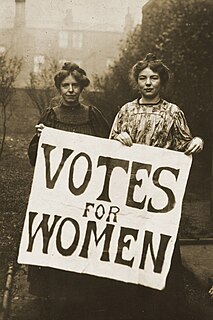
From the earliest days of the Christian faith, Christians have honored marriage, or holy matrimony, as a divinely blessed, lifelong, monogamous union, between a man and a woman. According to the Episcopal Book of Common Prayer (1979), reflecting the traditional view, "Christian marriage is a solemn and public covenant between a man and a woman in the presence of God," "intended by God for their mutual joy; for the help and comfort given one another in prosperity and adversity; and, when it is God's will, for the procreation of children and their nurture." However, while many Christians might agree with the traditional definition, the terminology and theological views of marriage have varied through time in different countries, and among Christian denominations.

Marriage, also called matrimony or wedlock, is a culturally recognised union between people, called spouses, that establishes rights and obligations between them, as well as between them and their children, and between them and their in-laws. The definition of marriage varies around the world, not only between cultures and between religions, but also throughout the history of any given culture and religion. Over time, it has expanded and also constricted in terms of who and what is encompassed. Typically, it is an institution in which interpersonal relationships, usually sexual, are acknowledged or sanctioned. In some cultures, marriage is recommended or considered to be compulsory before pursuing any sexual activity. When defined broadly, marriage is considered a cultural universal. A marriage ceremony is called a wedding.

An engagement or betrothal is the period of time between a marriage proposal and the marriage itself. During this period, a couple is said to be fiancés, betrothed,intended, affianced, engaged to be married, or simply engaged. Future brides and grooms may be called fiancée (feminine) or fiancé (masculine), the betrothed, a wife-to-be or husband-to-be, respectively. The duration of the courtship varies vastly, and is largely dependent on cultural norms or upon the agreement of the parties involved.
When a person assumes the family name of their spouse, that name replaces the person's previous surname, which in the case of the wife is called the maiden name, whereas a married name is a family name or surname adopted by a person upon marriage. In Scotland it is legal and not unusual for a woman to retain her maiden name after marriage, however in doing so it means children will have different surnames to their mother or people will assume the father isn't the biological father.

Women's rights are the rights and entitlements claimed for women and girls worldwide, and they formed the basis for the women's rights movement in the 19th century and the feminist movement during the 20th century. In some countries, these rights are institutionalized or supported by law, local custom, and behavior, whereas in others, they are ignored and suppressed. They differ from broader notions of human rights through claims of an inherent historical and traditional bias against the exercise of rights by women and girls, in favor of men and boys.

A wife is a female partner in a continuing marital relationship.
A dowry is a transfer of parental property, gifts, or money at the marriage of a daughter (bride). Dowry contrasts with the related concepts of bride price and dower. While bride price or bride service is a payment by the groom or his family to the bride's parents, dowry is the wealth transferred from the bride's family to the groom or his family, ostensibly for the bride. Similarly, dower is the property settled on the bride herself, by the groom at the time of marriage, and which remains under her ownership and control.

In Islam, a mahr is the obligation, in the form of money or possessions paid by the groom, to the bride at the time of islamic marriage. While the mahr is often money, it can also be anything agreed upon by the bride such as jewelry, home goods, furniture, a dwelling or some land. Mahr is typically specified in the marriage contract signed during a marriage.
Breach of promise is a common law tort, abolished in many jurisdictions. It was also called breach of contract to marry, and the remedy awarded was known as heart balm.

In Islamic law (sharia), marriage is a legal and social contract between two individuals. Marriage is an act of Islam and is strongly recommended. Polygyny is permitted in Islam under some conditions, but polyandry is forbidden.

In Islam, marriage is a legal contract between a man and a woman. Both the groom and the bride are to consent to the marriage of their own free wills. A formal, binding contract – verbal or on paper – is considered integral to a religiously valid Islamic marriage, and outlines the rights and responsibilities of the groom and bride. Divorce in Islam can take a variety of forms, some executed by a husband personally and some executed by a religious court on behalf of a plaintiff wife who is successful in her legal divorce petition for valid cause.

Divorce in Islam can take a variety of forms, some initiated by the husband and some initiated by the wife. The main traditional legal categories are talaq (repudiation), khulʿ, judicial divorce and oaths. The theory and practice of divorce in the Islamic world have varied according to time and place. Historically, the rules of divorce were governed by sharia, as interpreted by traditional Islamic jurisprudence, though they differed depending on the legal school, and historical practices sometimes diverged from legal theory. In modern times, as personal status (family) laws were codified, they generally remained "within the orbit of Islamic law", but control over the norms of divorce shifted from traditional jurists to the state.

Forced marriage is a marriage in which one or more of the parties is married without their consent or against their will. A marriage can also become a forced marriage even if both parties enter with full consent if one or both are later forced to stay in the marriage against their will. A forced marriage differs from an arranged marriage, in which both parties presumably consent to the assistance of their parents or a third party such as a matchmaker in finding and choosing a spouse. There is often a continuum of coercion used to compel a marriage, ranging from outright physical violence to subtle psychological pressure. Though now widely condemned by international opinion, forced marriages still take place in various cultures across the world, particularly in parts of South Asia and Africa. Some scholars object to use of the term "forced marriage" because it invokes the consensual legitimating language of marriage for an experience that is precisely the opposite. A variety of alternative terms have been proposed, including "forced conjugal association" and "conjugal slavery".

Dower is a provision accorded by law but traditionally by a husband or his family, to a wife for her support in the event that she should become widowed. It was settled on the bride by agreement at the time of the wedding, or as provided by law.
The topic of Islam and children includes the rights of children in Islam, the duties of children towards their parents, and the rights of parents over their children, both biological and foster children. Also discussed are some of the differences regarding rights with respect to different schools of thought.

"Thou shalt not commit adultery", one of the Ten Commandments, is found in the Book of Exodus of the Hebrew Bible and Old Testament. It is considered to be the sixth commandment by Roman Catholic and Lutheran authorities, but the seventh by Jewish and most Protestant authorities. What constitutes adultery is not plainly defined in this passage of the Bible, and has been the subject of debate within Judaism and Christianity.
In pre-Islamic Arabia, a variety of different marriage practices existed. The most common and recognized types of marriage at this time consisted of: marriage by agreement, marriage by capture, marriage by mahr, marriage by inheritance and Mutah or temporary marriage.

Wife selling is the practice of a husband selling his wife and may include the sale of a female by a party outside a marriage. Wife selling has had numerous purposes throughout the practice's history; and the term "wife sale" is not defined in all sources relating to the topic.

Slavery in international law is governed by a number of treaties, conventions and declarations. Foremost among these is the Universal Declaration on Human Rights (1948) that states in Article 4: “no one should be held in slavery or servitude, slavery in all of its forms should be eliminated.”

Cariye or Cariyes was a title and term used for category of enslaved women concubines in the Islamic world of the Middle East. They are particularly known in history from the era of the Ottoman Empire, where they legally existed until the mid-19th century.










